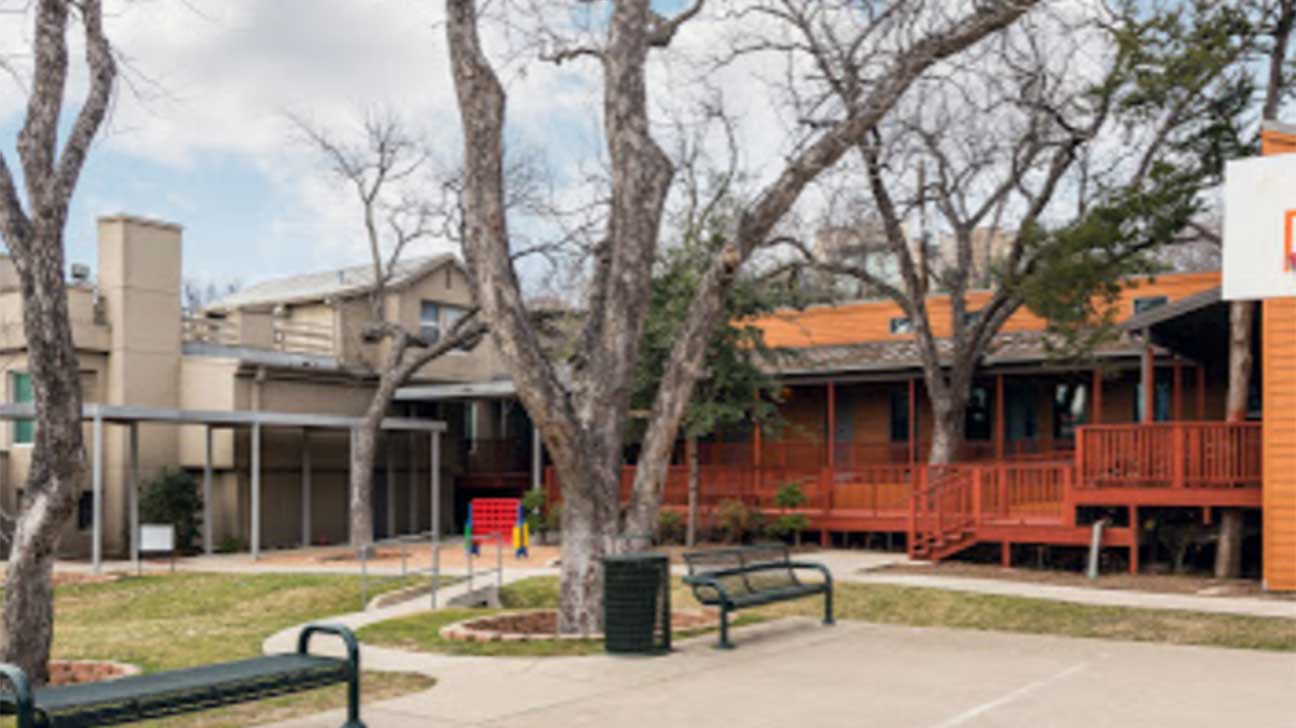
Nearly 5 million Texas residents are enrolled in Medicaid, a government-funded health insurance program that covers physical and behavioral health services.
Texas Medicaid provides coverage for low-income children, families, seniors, and people with disabilities.
For people experiencing substance abuse, alcohol and drug addiction treatment is available in free and low-cost options under Texas Medicaid.
Find out more about using Medicaid to pay for addiction treatment.
Addiction Treatment Services Covered By Texas Medicaid
If you qualify for Texas Medicaid, you can receive addiction treatment for little or no cost.
There are many evidence-based, proven treatment measures available in the state of Texas.
Much like private health insurance, Medicaid covers many of these addiction healthcare services.
Some of the treatment programs and services covered include:
- drug and alcohol detox (medical detoxification)
- inpatient programs
- residential programs
- partial hospitalization programs (PHP)
- medication-assisted treatment (MAT)
- co-occurring psychiatric and substance use disorder services (adult and youth)
- specialized women’s services (adult and youth)
- outreach
- inpatient treatment
- screening and assessment
- referrals
- pregnant and parenting intervention, including treatment for neonatal abstinence syndrome
- community-based support
View our list of Texas drug detox and rehab centers for more treatment options.
Types Of Medicaid In Texas
There are five different Medicaid programs offered in Texas.
The five plans are:
- STAR: available to pregnant women, children, and families
- STAR+PLUS: available to people who have disabilities or those age 65 or older
- STAR Kids: provides benefits to children and adults ages 20 and younger who have disabilities
- STAR Health: covers children and young people under age 20 or 21 currently or previously in foster care
- Traditional Medicaid: available to eligible people not enrolled in STAR, STAR+PLUS, STAR Kids, or STAR Health
Top 4 Drug Rehab Centers In Texas That Accept Medicaid
Many addiction recovery centers in Texas accept Medicaid, and four were selected for this list.
Programs were selected based on the following criteria:
- accreditation
- high Google ratings
- evidence-based practices
- client testimonials
- awards and verifications
1. Cenikor Foundation, Multiple Locations
Cenikor provides substance abuse treatment for both adults and adolescents.
Behavioral health programs are available in multiple Cenikor facilities, including Amarillo, Austin, and Houston addiction treatment centers.
Trusted features:
- Commission on Accreditation of Rehabilitation Facilities (CARF) accreditation
- 4.1-star Google rating
Levels of care:
- medical detox
- residential program
- inpatient program
- outpatient program (OP)
- medication-assisted treatment (MAT)
- aftercare
Treatment services:
- assessments
- individual therapy
- group therapy
- support groups
- life skills training
- addiction education
- family support
- relapse prevention
- sober living housing
Payment options:
- Medicaid
- Medicare
- TRICARE
- commercial health insurance
- self-pay
Location and contact information:
1001 Wallace Blvd.
Amarillo, TX 79106
(888) 236-4567
2. MedMark Treatment Centers, Multiple Locations
MedMark is an outpatient, medication-assisted treatment program for opioid drug abuse that uses methadone and buprenorphine.
Trusted features:
- Commission on Accreditation of Rehabilitation Facilities (CARF) accreditation
- LegitScript certification
Levels of care:
- outpatient program (OP)
- medication-assisted treatment (MAT)
Treatment services:
- case management
- referrals
- individual counseling
- group counseling
- pregnancy care
Payment options:
- Medicaid
- Medicare
- TRICARE military insurance
- commercial health insurance
- self-pay
Location and contact information:
7428 Military Dr. W.
Ste. D
San Antonio, TX 78227
(210) 673-8111
3. Phoenix House Texas, Multiple Locations
Phoenix House provides addiction care and prevention services in Austin, Dallas, Houston, Round Rock, and San Antonio.
Trusted features:
- Commission on Accreditation of Rehabilitation Facilities (CARF) accreditation
- 3.3-star Google rating
Levels of care:
- residential program
- intensive outpatient program (IOP)
- outpatient program (OP)
Treatment services:
- assessment
- case management
- individual therapy
- group therapy
- support groups
- addiction education
- family support
- life skills training
Payment options:
- Medicaid
- TRICARE military insurance
- Children’s Health Insurance Program (CHIP)
- state funding
- commercial health insurance
- self-pay
Location and contact information:
2345 Reagan St.
Dallas, TX 75219
(214) 999-1044
4. Unlimited Visions Behavioral Health Institute, Multiple Locations
Unlimited Visions offers mental health services for adults and teens in recovery from drug and alcohol addiction.
Treatment center locations are in Houston, Baytown, and Pasadena, TX.
Treatment services include both short-term and long-term care.
Trusted features:
- Commission on Accreditation of Rehabilitation Facilities (CARF) accreditation
- 4-star Google rating
Levels of care:
- residential program
- outpatient program (OP)
- aftercare
Treatment services:
- individual therapy
- group therapy
- support groups
- family education
- life skills training
- dual diagnosis treatment
- relapse prevention
Payment options:
- Medicaid
- commercial health insurance
- self-pay
Location and contact information:
5519 Lawndale
Houston, TX 77023
(713) 923-1786
Factors That Affect Texas Medicaid Coverage For Addiction Treatment
Medicaid in Texas covers most of the cost of treatment services, but there may be some payment required. There may also be drawbacks in wait times for rehab or prior authorization.
Several factors can impact the amount you may pay for addiction care.
Deductibles And Copays
You may be required to cover a copayment for addiction treatment, particularly if you’re enrolled under a Health Insurance Premium Payment (HIPP) program.
A HIPP program is a Medicaid program that helps families with at least one person who uses Medicaid to pay for an employer-sponsored health insurance premium.
Getting Prior Authorization
For behavioral health services providers that take Medicaid, expect waitlists to be longer.
Because Medicaid treatment centers are in higher demand, there will be more people seeking treatment at those locations.
Waitlists
For treatment facilities that take Medicaid, expect waitlists to be longer.
Because Medicaid treatment centers are in higher demand, there will be more people seeking treatment at those locations.
What Are The Eligibility Qualifications For Texas Medicaid Drug Rehab?
To enroll in Medicaid, you must be part of an eligible demographic.
These demographics are:
- pregnant women
- people responsible for a child 18 years of age or younger
- people who are blind
- children in foster care
- disabled people and their family members
- people 65 years of age or older
Texas Medicaid Income Eligibility Requirements
Income limitations are based on a person’s income compared to the federal poverty level (FPL). For example, pregnant women are eligible for Medicaid if they make up to 198% of the FPL.
Here are recent monthly income limits for pregnant women based on their household size:
- one-person household: $2,406
- two-person household: $3,254
- three-person household: $4,102
- four-person household: $4,950
- five-person household: $5,799
For each additional person after eight, add another $849.
How To Use Your Texas Medicaid Plan For Drug Rehab
To use Medicaid to cover addiction treatment options, you must follow specific steps.
These steps are:
- Choose a health plan (STAR, STAR+PLUS, STAR Kids, Traditional Medicaid, or STAR Health).
- Apply for the insurance program.
- If accepted, choose a rehab facility that takes Medicaid.
Speak with the Medicaid treatment center about programs covered by Medicaid. You may need to verify your insurance to determine which services are covered by your plan.
FAQs On Addiction Treatment Facilities That Accept Texas Medicaid Insurance Coverage
As you narrow down your search for rehab centers that accept Medicaid, there are a few important factors to consider.
Here, we’ve answered top-asked questions about Medicaid insurance plans for drug and alcohol treatment in Texas.
Does Texas Medicaid Cover Behavioral Therapy?
Texas Medicaid covers behavioral therapies, including cognitive behavioral therapy and cognitive processing therapy.
How Much Does Drug Rehab Cost In Texas Without Medicaid?
Without Medicaid, drug dependency programs can cost anywhere between a few hundred dollars and $25,000.
Outpatient drug treatment generally costs between $5,000 and $10,000, and inpatient or residential treatment can cost between $10,000 and $25,000.
What Is The Average Cost Of A Texas Medicaid Drug Rehab Program?
Many Medicaid-covered programs are completely free. There can be small copays, but most of the services are fully covered.
Find An Addiction Treatment Provider Today
If you or a loved one needs help overcoming substance abuse, contact Detox Rehabs today to discover viable treatment options.
Article Sources- Center for Public Policy Priorities—How Medicaid and Federal Block GrantsHelp Treat Substance Use Disorders
https://everytexan.org/images/HW_2018_SubstanceUse_Medicaid.pdf#:~:text=Today%2C%20Texas%20Medicaid%20covers%20roughly,nine%20percent%2C%20received%20SUD%20treatment. - Texas Health and Human Services—Adult Substance Use
https://www.hhs.texas.gov/services/mental-health-substance-use/adult-substance-use - Texas Health and Human Services—Healthcare Statistics
https://www.hhs.texas.gov/about-hhs/records-statistics/data-statistics/healthcare-statistics - Texas Health and Human Services—Medicaid & CHIP
https://www.hhs.texas.gov/services/health/medicaid-chip - Texas Health and Human Services—Substance Use Disorder Service Providers
https://www.hhs.texas.gov/doing-business-hhs/provider-portals/behavioral-health-services-providers/substance-use-disorder-service-providers - Texas Health and Human Services—Chapter 3: Eligibility
https://www.hhs.texas.gov/sites/default/files/documents/laws-regulations/reports-presentations/2017/medicaid-chip-perspective-11th-edition/11th-edition-chapter3.pdf


